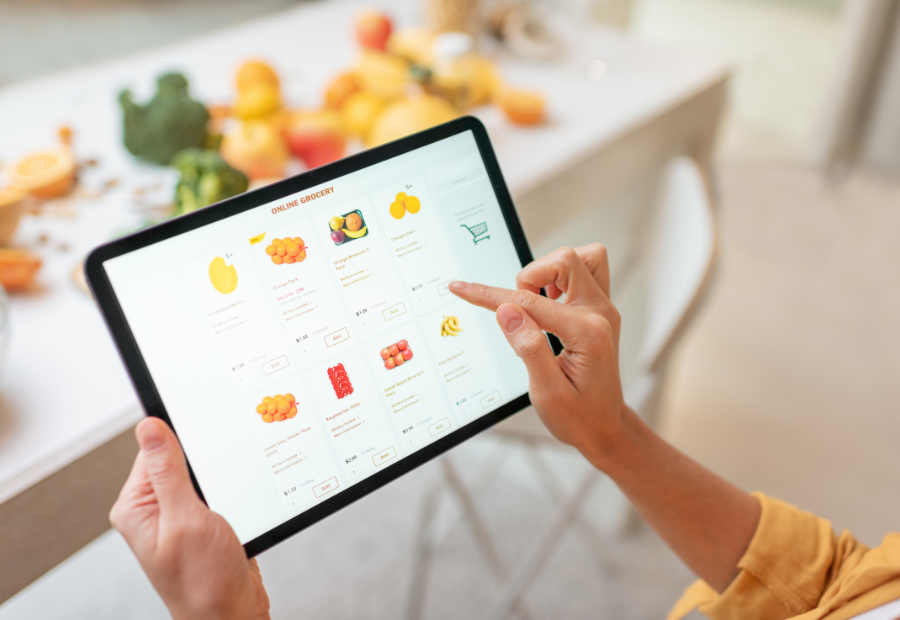
The US grocery e-commerce market slipped back in 2023 due to a “decline in order frequency” from online shoppers, a new report shows.
Bricks Meets Click, a US consultancy that focuses on online shopping, and e-commerce grocery business Mercatus reported the online grocery market in the US finished 2023 with $95.8bn in total sales, down 1.2% compared to 2022.
The survey monitors the “order frequency among monthly active users”, which, the researchers said, contracted for the second year in a row in 2023. The average number of monthly online grocery orders completed fell 6% versus 2022, following a 4% drop in the previous year.
By contrast, the average order value (AOV), not adjusted for price inflation, jumped 3% in aggregate in 2023 versus the prior year. Each receiving method showed year-on-year rises: delivery AOV grew by 3%, pickup increased by 2.6% and “ship-to-home” rose 1.7% compared to 2022.
“These annual results show that 2023 was very challenging for grocery retailing as higher prices chipped away at household purchasing power even though inflation has slowed considerably since its peak in 2022,” David Bishop, partner at Brick Meets Click, said.
“Despite the challenges, pickup continues to prove its appeal to shoppers, even without the benefits of expanded availability and/or aggressive promotions that aided delivery in 2023.”
In terms of share of wallet, the online channel’s share of total grocery spending decreased 18 basis points in 2023, dropping to 12.5%.
Excluding “ship-to-home”, which most US supermarkets do not offer, the combined pickup and delivery segments fared slightly better, falling six basis points compared to 2022 and finishing the year with a 10.4% share of total grocery spending.
Mark Fairhurst, global chief growth officer at Mercatus, said: “As Walmart grabs market share through its price leadership and omnichannel strategies, regional grocers find themselves in a precarious position.
“To remain competitive, they must intensify their efforts in improving customer engagement, offering tailored personalisation and building loyalty. This strategic shift is not just about weathering the storm of price inflation and intense competition, but about thriving in it.”
Earlier this week, Uber confirmed it was closing Drizly just three years after the technology group bought the US on-demand online alcohol retailer for $1.1bn.
Drizly’s e-commerce platform was founded in Boston in 2012. The business partnered with local liquor retailers, which in turn delivered the online orders.



